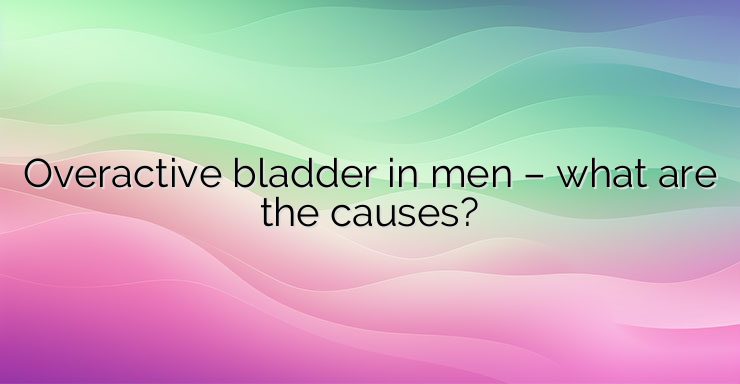What is an overactive bladder? Overactive bladder is a relatively common condition. Typical symptoms include – frequent urination, frequent urination at night, persistent urge to urinate and incontinence (spontaneous leakage of urine). About 20% of men experience symptoms of overactive bladder. It is possible that even more men suffer from this condition but never seek help. There are a variety of treatment options that can help these patients. What are the symptoms of overactive bladder? Several symptoms are often associated with an overactive bladder. With the condition, it is possible to observe even just one characteristic symptom. The condition causes an urgent need to urinate more than eight times a day. The patient may also experience nocturia, or the need to urinate at night, which may reach more than 3-4 times a night. Another common symptom of overactive bladder is urinary incontinence. This occurs when the urge to urinate is so strong that it cannot be controlled, causing urine to leak before the patient is able to go to the toilet. Involuntary leakage of urine can occur when the patient laughs, sneezes, coughs or exercises. What is the relationship between overactive bladder and prostate? Among men, many cases of overactive bladder are caused by an enlarged prostate gland. The prostate can increase in size with age. Therefore, it can block the urethra (urinary canal), causing symptoms of the condition. According to some data, about 50% of men experience symptoms of an enlarged prostate by the age of 60, and about 90% of men experience symptoms by the age of 85. What other causes of overactive bladder in men are there? An enlarged prostate is one of the main causes of overactive bladder in most men, but there are many other factors that can lead to symptoms of the condition. A bladder infection, bladder stones, or bladder cancer can also cause an overactive bladder. Neurological conditions, such as stroke or Parkinson’s disease, can also lead to the condition due to nerve damage that causes incorrect signals to be sent to the bladder. It is also possible for temporary factors to cause symptoms of the condition, such as consuming too many liquids, especially those containing caffeine or alcohol. Some medications also increase urine output. If the patient experiences constipation, this may also lead to an increased need to urinate. Bibliography: The National Association for Continence. Men’s conditions Healthline. Overactive Bladder in Men: Causes, Diagnosis, and Treatment The American Urological Association. Urology Care Foundation. What is overactive bladder (OAB)?


Leave a Reply